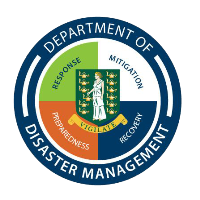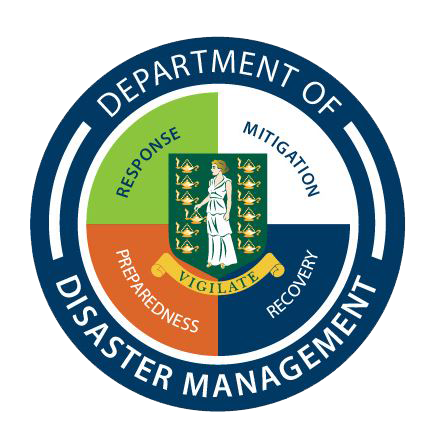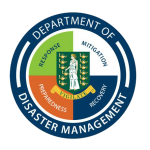67
The British Virgin Islands joins the rest of the world today in observing International Day for Disaster Reduction (IDDR) under the theme Resilience is for Life.
The day is set aside by the United Nations to celebrate how people and communities are reducing their risk to disasters and to raise awareness about the importance of disaster risk reduction. This year’s theme highlights the need for a more inclusive approach for older people in disaster risk reduction and to recognise the critical role they can play in resilience-building through their experience and knowledge.
Older persons tend to be more vulnerable to the impact of disasters due to their advancing age and associated factors such as impaired physical mobility, diminished sensory awareness, pre-existing health conditions, and social and economic constraints. Additionally, extreme climate and disaster events as well as current trends in emerging health hazards have the potential to further increase that vulnerability.
In a message to mark the occasion, His Excellency, Governor John S. Duncan, OBE said it is important to plan for and work with the older population as they can contribute to community resilience. He noted that despite their vulnerabilities, many older people live in the community and oftentimes provide a valuable support network.
“They are valuable resources for their families and communities particularly during times of crisis. They care for grandchildren or neighbours, and participate in support and recovery initiatives. Their years of experience frequently make them models of personal resilience and sources of inspiration and practical knowledge,” Governor Duncan said.
According to the Central Statistics Office, just under 2,200 older persons reside in the British Virgin Islands which accounts for about 7.5% of the total population.
As part of activities in observance of IDDR, the Department of Disaster Management (DDM) undertook a survey, which as the Governor explained, is designed to “determine the levels of awareness and disaster preparedness among the older population, and equally important to document their experiences of past events that have impacted upon our islands.”
Administered online and through interviews with persons on the four main islands, the respondents were on average 73 years, with the oldest respondent being 95 years old and they welcomed the particular attention being paid to their needs.
Over 90% of those surveyed recorded a high level of preparation for hazard impacts but just under half of them have the ability to evacuate by themselves and are therefore dependent on a neighbour or family member for assistance. Not surprising was the high percentage of older persons who depend on traditional media such as radio, television and sirens to receive warning notification. Approximately, 25% indicated a reliance on text messaging and less than 10% relied on the internet and social media.
Over 50% of those surveyed expressed an interest in participating in discussions and sharing their experiences on ways for the community to cope and survive the impact of hazards. This was directly linked to 64% of them having experienced a hazard event in their lifetime. The responses to questions posed regarding preparations, were in keeping with standard practices. There were clear themes identified, that of ensuring proper documentation of information, supporting each other and ensuring home protection.
The results of the survey, analysed with the support of the Central Statistics Office, will be used by the DDM in developing programmes suited for older persons throughout the BVI. It will also guide the department’s approach to incorporating new techniques and technology alongside traditional early warning methods.
Initiated by the United Nations General Assembly in 1989, the observance of International Day for Disaster Reduction is intended to promote a global culture of disaster risk reduction, including disaster prevention, mitigation and preparedness.





